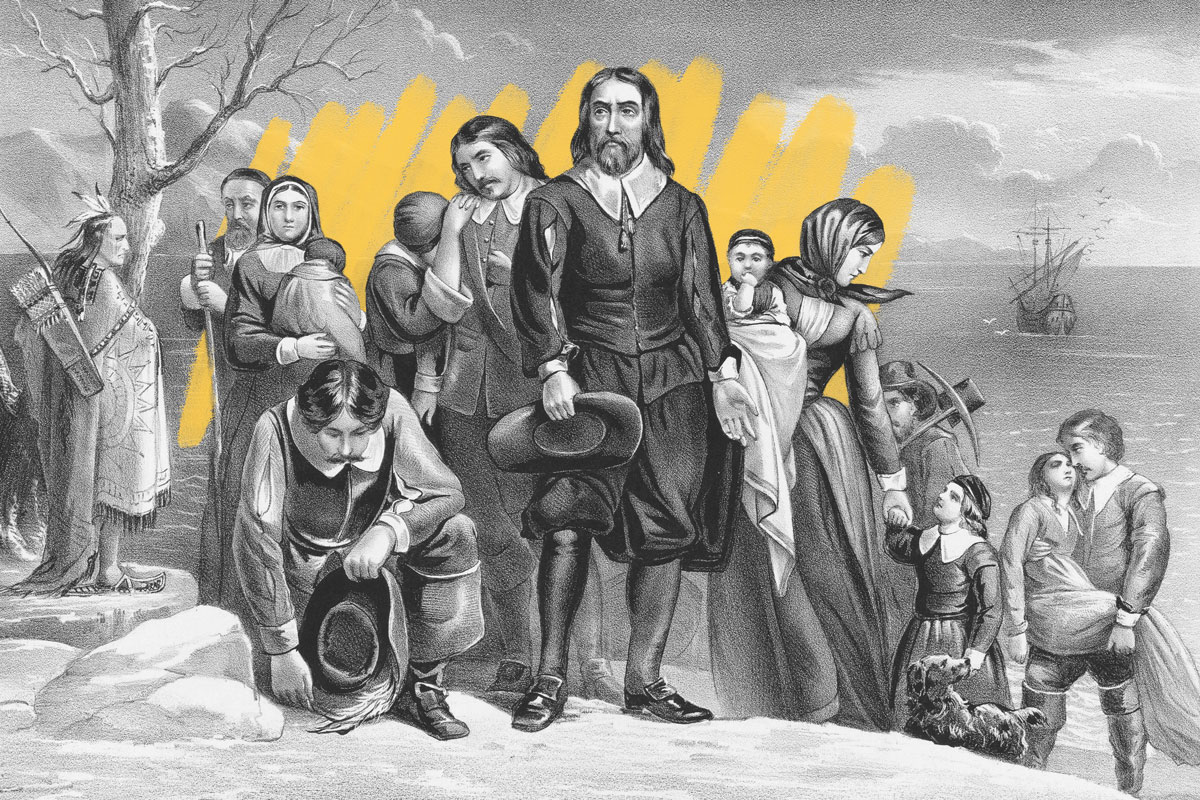The Pilgrims settled at Plymouth partly because they were running low on beer.
The old proverb holds that for want of a nail, the kingdom was lost. And yet, it seems that for want of beer, a colony was founded. The religious separatists known today as Pilgrims, who left England aboard the Mayflower in September 1620, endured cramped conditions and frightening storms as they waited out their journey across the Atlantic Ocean. As described in Susan Cheever’s Drinking in America: Our Secret History, one of the few sources of relief for this troubled lot was the daily ration of up to a gallon of beer. Besides helping to calm harrowed nerves, the fermented beverage provided health benefits to imbibers, as it was safer to drink than the algae-laced water supplies.
The Mayflower passengers were ecstatic to finally reach the shores of America when they landed in Massachusetts in November, but they were bound by contract with the Virginia Company of London to settle farther south. However, the ship was blown off course, and dangerous rocks and shifting shoals prevented it from progressing to Virginia, prompting captain Christopher Jones to turn his storm-battered ship back toward Cape Cod. According to William Bradford, an early governor of Plymouth Colony, the Mayflower crew still had some beer left when they landed in Massachusetts, but they were saving it for the return trip and thus pushed the Pilgrims to go to shore and drink water.
After a few weeks of scouring the region, the Pilgrims realized the importance of finding a spot to bunker down for the winter and beyond; as one passenger wrote in a surviving journal from the period, “[W]e could not now take time for further search or consideration, our victuals being much spent, especially our beer.” The newcomers promptly began building what became Plymouth Colony in the area of an abandoned Wampanoag settlement, with a brew house unsurprisingly among the first structures to be raised.









